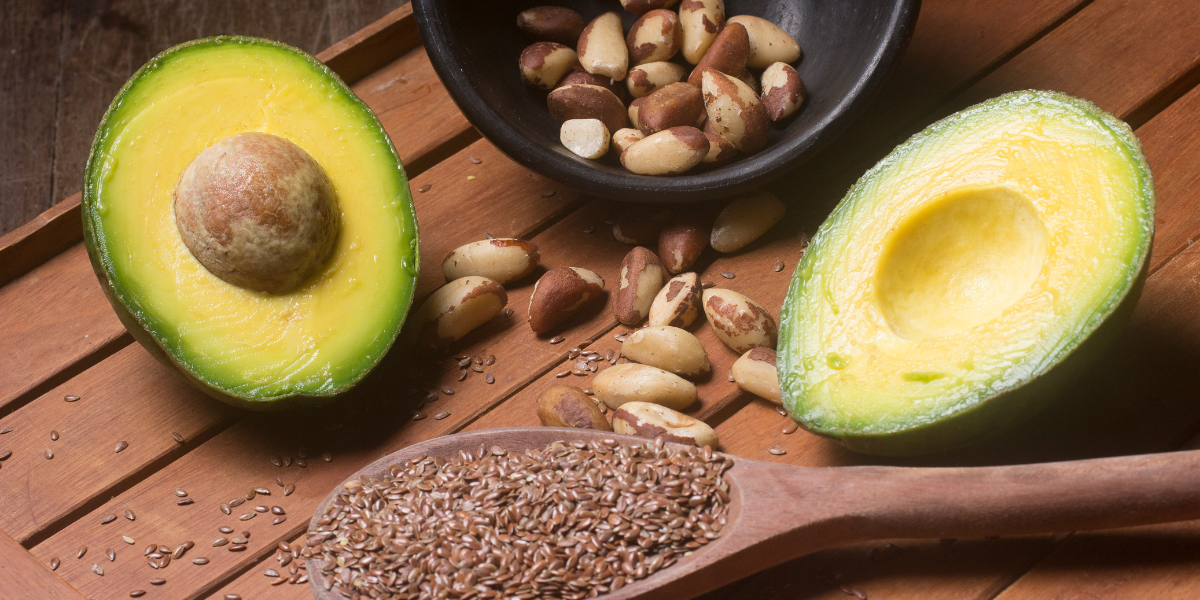
How to get omega-3s on a vegan diet.
Despite what people say, there is omega-3 in vegan foods, and omega-3s can be easily obtained in a plant-based diet. So here are some ways to get more vegan sources of this healthy fat into your life!
What are omega-3 fatty acids?
Omega-3 fatty acids are polyunsaturated fats (a type of dietary fat also known as PUFAs) that are found widely in nature and play an important role in human physiology and maintaining good health.
There are three main types of omega-3 fatty acids:
Each of these omega-3s play different roles in the body, all with different health impacts. However, ALA is the only omega-3 that is considered an essential fat because the human body can not make it on its own and must rely on diet to obtain it.
Are omega-3s essential?
Yes. The human body can not make omega-3 fatty acids (also called omega-3 fats) on its own and thus it is required to source them from food. Non-essential fats can be made in the body, but omega-3s can not.
How can vegans get EPA and DHA?
Seaweed, algae, and spirulina are the only known vegan foods rich with omega-3s that also contain EPA and DHA omega-3s.
Plant foods (besides spirulina, seaweed & algae) only contain ALA, but the body can convert it to the other two forms of omega-3 fatty acids (EPA and DHA.) This is why EPA and DHA are not considered essential fats.
However, our bodies are not efficient at this conversion, but there isn’t enough evidence to suggest that they should be considered essential fats.
On top of that, there are currently no recommendations for vegans and vegetarians for omega-3 intake, which means that vegans should aim to get the same amount of omega-3 fatty acids as everyone else.
What about supplements? Do vegans need to take supplements to get their omega-3s? It’s not necessary, but it’s important to eat plenty of foods rich in ALA to meet your daily omega-3 nutrition requirements.
How much omega-3s do you need per day?
The daily recommended intake of omega-3 fats for women over age 19 is 1,100 mg and 1,600 mg for men.
What foods are high in omega-3 fatty acids?
While fish is a source of omega-3 fat, there is plenty to go around from vegetable oils, nuts, seeds, and leafy green vegetables.
In fact, fish is not the top source of omega-3 fatty acid - it's flax seeds with a whopping 22813 mg of omega-3s per 100 grams. That's 1426% AI (adequate intake, a value based on an experimentally determined approximation of nutrient intake in healthy populations.)
What are the health benefits of omega-3 fatty acids?
Omega-3 fatty acids are known to have many health benefits including:
- Lower chances of developing depression & anxiety
- Prevent heart disease & stroke
- May help control lupus
- May help control eczema
- May help control rheumatoid arthritis
- May protect against cancer
The best known (and shown) health benefit of omega-3 fats is to prevent heart disease.
What are vegan sources of Omega-3?
There are many vegan sources of Omega 3 that should be eaten regularly, if not daily, to provide enough omega-3 on a vegan diet. The following foods are vegan sources of omega-3 fatty acids:
1. Flax seeds
Flax seeds are a vegan source of omega 3, and they're also high in fibre. Flax seed oil is also available as a supplement if it's necessary.
You can grind whole flax seeds into a powder at home or buy them whole and add them into breakfast cereal, curd, baked goods (like bread and cookies), or mix them into your smoothie.
There are even ways to use flax seeds as a vegan egg replacement: just combine one tablespoon of ground flax seeds with three tablespoons of water and allow it to sit for about 5 minutes. This is equivalent to one egg in a recipe.
2. Chia seeds/Sabja seeds
If you have ever heard of chia seeds, they're an ancient grain originally from South America. Sabja seeds (also called basil seeds) are practically the same thing, but they're indigenous to India and don't require to be imported - plus they're fairly easy to come across, and they're just as nutritious.
Sprinkle some into coconut water, mashed banana, smoothies, or use them as a topping.
3. Walnuts
Walnuts are a vegan source of omega-3. They're also good sources of protein, fibre, vitamins, and minerals. In fact, they're about 65% fat by weight!
4. Butter fruit (avocado)
Butter fruit has a high fat content, and they're rich in omega-3 fatty acids.
Butter fruit is also great for your health: it's good for your skin, your eyesight, it can reduce muscle pain, it can help fight cancer, can promote weight loss, and can improve your gut health.
Other omega 3 vegan foods:
- Seaweed and algae
- Canola oil
- Rajma
- Hemp seeds
If you enjoyed this blog post, check out some of our other blog posts on vegan nutrition:


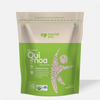
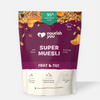
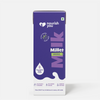
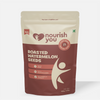
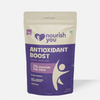
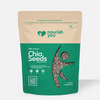
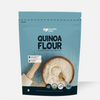

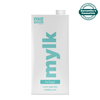
Leave a comment